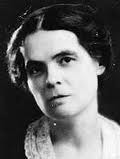A Quote by Gautham Menon
In everybody's life, there is love, there is sorrow, there is melancholy. And there might be danger as well.
Related Quotes
A Strange melancholy pervades me to which I hesitate to give the grave and beautiful name of sorrow. The idea of sorrow has always appealed to me but now I am almost ashamed of it's complete egoism. I have known boredom, regret, and occasionally remorse, but never sorrow. Today it envelops me like a silken web, enervating and soft, and sets me apart from everybody else.
Jesus offered a single incentive to follow himto summarize his selling point: 'Follow me, and you might be happy-or you might not. Follow me, and you might be empowered-or you might not. Follow me, and you might have more friends-or you might not. Follow me, and you might have the answers-or you might not. Follow me, and you might be better off-or you might not. If you follow me, you may be worse off in every way you use to measure life. Follow me nevertheless. Because I have an offer that is worth giving up everything you have: you will learn to love well.'
We are so convinced of the goodness of ourselves, and the goodness of our love, we cannot bear to believe that there might be something more worthy of love than us, more worthy of worship. Greeting cards routinely tell us everybody deserves love. No. Everybody deserves clean water. Not everybody deserves love all the time.






































